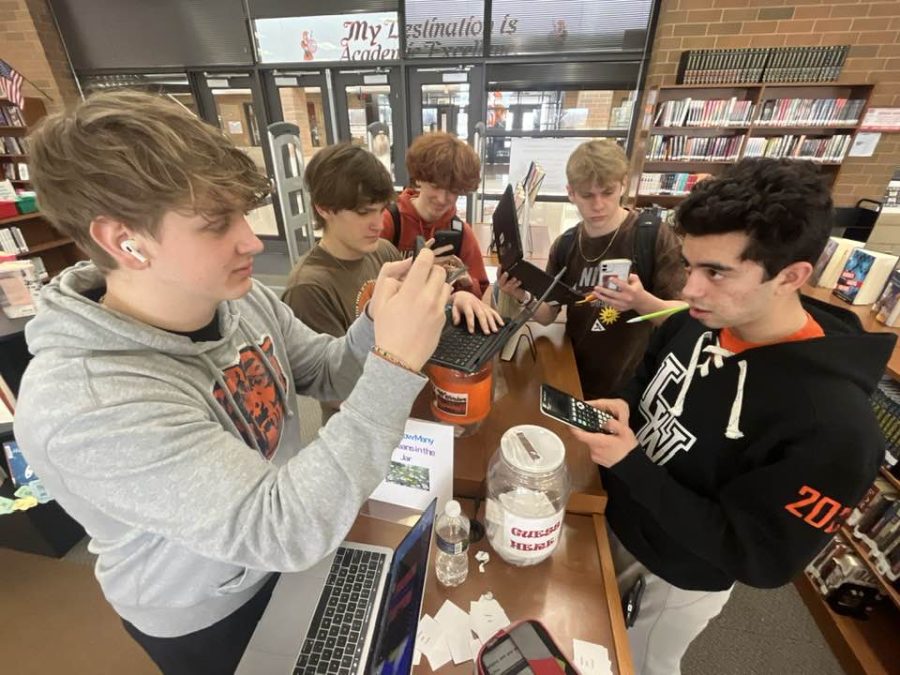The Freedoms of Social Media
March 17, 2023
Society has come to an understanding that social media is more likely to become a dangerous place rather than a beneficial place for teens. Social media sites harbor avenues for negativity in almost every aspect the site may have to offer. Every new app or website is met with a mission statement that always promises “safety and positivity for all” in some way or another, but as time goes on, it poses the question of whether such statements made are said with willing naiveness or intended ignorance.
That same idea presents itself outside of social media as well. Our society is still trying to wrap its head around the idea that words carry weight, and such lingering weight could pose dangerous situations throughout our world. Take our country’s democracy, as an example. America was founded on freedom, and we strive for that idea daily. But as we progress and shift our focus more socially within legislation, we gain and possess opinions during that process. Naturally, as humans, we express emotions through words, and with passionate words come action- good or bad. Living in the 21st century, we communicate in a modern way, and what is communication in its most modern form if not social media? Almost all lawmakers and people who hold political power have at least one form of social media, and in most cases, it’s an official social media page dedicated to their government position. At least, personally, I can say for myself that places like Twitter and Instagram are where I get most of my news. To that same point, I also acknowledge major bias when I see it. The accounts I follow sway in the directions I support and report on causes I am passionate about due to the algorithms and my search history.
My case isn’t unlike many others, and now the question of whether that is a problem is being posed in light of current events. If all teens grow up on social media only following accounts that sway in the direction they support, how can we ensure that we’re getting equal and correct information? More recently, though, there seems to be a major debate on the guidelines of freedom of speech within social media. Putting politics aside- if anyone can say anything on anyone’s page, that puts teens in danger. It’s a simple idea that seems to be proven more a fact as time goes on and statistics become more plausible and credible.
A more modern example of this debate would be how Twitter seems to be headed downhill, but don’t worry; it is being driven by a Tesla. Officially, on October 28th of 2022, Elon Must bought Twitter and since then it has been pure chaos. Twitter has become a true home for all those who choose to say absolutely whatever they want, and Musk seems to pride himself in that idea since it was his mission when he offered to buy the app for $44 billion dollars. He has since coined himself a “free speech absolutist” and promises to make the platform a sanctuary for users with all types of commentary. The effects of this won’t be surprising and I believe it is something most can accurately predict.
Nevertheless, something that isn’t being talked about enough is the effect of this on teens and their views of not only the world, but also themselves. The ages of 13-19 are times of reflection, growth, and understanding. It’s an impressionable stage that’s practically unavoidable. Teens understand the effect social media can have on themselves. Thankfully, there has begun to be more of a conversation about how to balance the relevancy of it in our lives and the self-control that must come with it. If social media becomes a place for all to say all, will that be productive or destructive for the impressionable teenage mind? Will it provide a place for teens to express themselves in a modern way or be in a position of manipulation with words? Will teens form opinions based on complete lies that they may carry for years later? Will those uninformed opinions filter into our country’s democracy once these teens are old enough to vote? How can we train and teach teens ways of navigating through something without its own navigation? A teen with no direction stumbles upon a platform that allows them to linger within words of misinformation and then leaves them there to grow without any direction. I fear that all the rhetorical questions I just posed may come to full fruition if we allow it. Social media could become a place where teens become destructive within their opinions and all because, as a society, we fail to recognize that when we were granted the right to free speech, we may not have considered the extremity words may carry in the future. We must act as the next generation toward recognizing the danger of this situation and constructing a plan toward balancing our right toward speech and protecting ourselves from manipulation and the dangers that may follow it. We must stick by our opinions, support those who do the same, and lead with honesty, facts, and recognition.
I may scroll through Instagram and Twitter knowing the accounts I follow surely have a bias- I’m okay with that. At the same time, I can also confidently say the accounts I follow are factual and credible sources that have held their credibility for years and aren’t just someone from Idaho who decided to tweet whatever they wanted simply because someone allowed them to. Being able to say whatever you want is all fun and games until someone decides to take those words and act on them.







